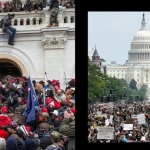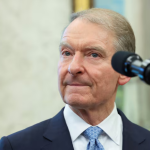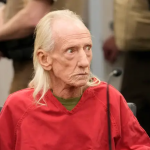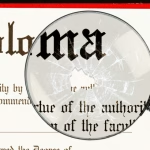At the Department of Justice, Emil Bove has had a hectic six months. Bove immediately began to establish himself as a feared enforcer of presidential will after President Donald Trump appointed him to a leadership position nearly immediately after the inauguration. He accused FBI officials of “insubordination” for not providing a list of FBI agents to fire for political reasons, personally dismissed lawyers involved in the prosecution of the January 6 rioters, and pressured other prosecutors to quit rather than follow what they saw as unethical orders. Bove, who suggested that the department should think about telling judges, “Fuck you,” was instrumental in pushing the administration to disregard court orders, according to a whistleblower.
This kind of behavior would likely have been sufficient grounds for Bove’s termination under any other administration. If not the entire presidency, they might have been sufficient to overthrow the attorney general. However, since this is the second Trump administration, Bove received a nomination for a lifetime appointment on the U.S. Court of Appeals for the Third Circuit as compensation rather than punishment. With all Democrats voting against the nominee, the Senate confirmed him to that position on Tuesday by a vote of 50 to 49. (Senators Susan Collins and Lisa Murkowski, both Republicans, voted against Bove; Republican Senator Bill Hagerty did not vote.)
Bove, 44, will play a role in influencing the law for decades to come as an appellate judge. The message his confirmation sends to talented young lawyers hoping to advance is even more important. With a slate of judicial nominees hand-picked by the conservative Federalist Society’s leadership, Trump was able to slant the courts to the right during his first term in office. Despite their ideological extremes, many of these judges were nominated because of a legal movement that, despite its shortcomings, had established a unique culture and set of jurisprudential principles that occasionally clashed with support for Trump or the MAGA movement. Bove’s confirmation implies that establishing a reputation as a bruiser who will stop at nothing to support Trump could be the path to a lucrative judicial appointment during his second term.
Bove was most known for his work on Trump’s criminal defense team when the president-elect declared in late November that he would appoint him to assist in running the Justice Department. Nevertheless, his resume appeared to be fairly typical for a member of the new government. He had frequently appeared in the Manhattan courtroom with Todd Blanche, whom Trump would later appoint as deputy attorney general, during the New York hush-money trial in the spring of 2024. A shaved head and a long, saturnine face that, along with his dark suit, caused some journalists covering the trial to make fun of his likeness to Nosferatu, Bove was a skilled litigator with a light touch in front of the judge that seemed to contrast with his somber appearance.
Bove showed no outward signs of being a MAGA ardent supporter, even during this time. There is no overt ideological bias in his respectable legal background. After attending Georgetown Law School, he worked as a prosecutor for many years in the Southern District of New York, a notoriously aggressive division of the Justice Department, before departing in 2021 to pursue a career in private practice.
There was some controversy during Bove’s tenure in the Southern District. Shortly after a judge chastised a unit he led for concealing exonerating evidence in a terrorism trial, he reportedly received a reprimand for abusive management and departed the position. Conflicts of interest were also a possibility because he was Trump’s attorney. However, when compared to the list of conspiracy theorists and unfit media personalities appointed to head other important departments, he was not a particularly poor choice to be the deputy attorney general’s chief adviser.
This comforting idea was short-lived. When Bove dismissed the lawyers who had been prosecuting the January 6 defendants on January 31, he cited Trump’s claim that the lawyers’ work amounted to a “severe national injustice.” As NBC News would soon reveal, Bove himself had pushed hard during his first stint at the DOJ to be involved in the insurgency investigation, so the choice of language was especially striking. He seemed unconcerned by this hypocrisy.
Bove persisted in establishing himself as Trump’s go-to person, the face of a new order that emphasized instant approval of Trump’s statements over impartial application of the law. In exchange for New York City Mayor Eric Adams’s help with immigration roundups, Bove compelled his former office in the Southern District to drop the corruption case against Adams in February. In the end, ten department lawyers—including the acting head of the Southern District—resigned rather than follow the order because it was so egregiously inappropriate. The judge in the case grudgingly admitted that dismissing the charges was his only option, but he did so in a way that prevented the government from hanging Adams with a future prosecution, denouncing the apparent plan as a “grave betrayal of the public trust.”
But Trump was happy. On May 28, he posted on Truth Social to announce Bove’s nomination to the federal bench. Regarding the new nominee, the president wrote, “He will end the Weaponization of Justice.” “You can always count on Emil Bove!”
Soon after, another Justice Department lawyer who had been fired came forward with whistleblower testimony, claiming that Bove had been instrumental in pushing the government to disregard court orders in several immigration cases. Erez Reuveni, the whistleblower, claims that Bove played a significant role in the government’s choice to send Venezuelans to a Salvadoran prison under the Alien Enemies Act in spite of a court order to the contrary. Bove did not completely refute the accusations when he was directly asked at his confirmation hearing on June 25 if he had implied that he might have defied the court. Rather, he claimed that he had “expressed the significance” of the flight to El Salvador and that he could not remember the exact words he used. Another whistleblower revealed in the days leading up to the confirmation vote that they had informed the Senate Judiciary Committee of new information supporting Reuveni’s report. It was also reported that a third whistleblower had tried to alert Republican senators to Bove’s deception during his confirmation hearing regarding his involvement in dropping the Adams case.
There was a deluge of opposition to Bove’s nomination. More than 900 former Justice Department attorneys and more than 80 retired judges signed letters pleading with the Senate to deny his appointment. The former government lawyers wrote, “We find it unacceptable that anyone who brings shame to the Justice Department would be elevated to one of the nation’s highest courts.” The editorial board of the conservative Wall Street Journal expressed concern as well. Other well-known proponents of Trump’s first-term attempts to move the courts to the right also disagreed. Ed Whelan, a conservative strategist who helped shepherd Brett Kavanaugh’s confirmation to the Supreme Court, cautioned, “I have serious doubts that Bove has the character and integrity to be worthy of confirmation as a federal judge.”
It seems that Republican senators were unmoved. Their opinions were also not altered by a number of last-minute disclosures, such as the fact that the Adams whistleblower had recorded audio of Bove making the incriminating remarks and that the Justice Department Office of Inspector General claimed to have “lost” the second whistleblower’s complaint. Following the vote, Democratic Senator Cory Booker of New Jersey, the state where Bove’s new judgeship is located, spoke on the Senate floor and bemoaned the chamber’s “abdication of its responsibilities.”
It’s unclear how Judge Bove will act on the bench. He appeared to endorse an assertive interpretation of unilateral presidential power during his confirmation hearing, which is consistent with the claims made by the Trump administration in court. There is a lot of conjecture that Bove will try out for the Supreme Court using his position on the Third Circuit. Or maybe he will be content with his accomplishment and use his lifetime appointment to abandon his pro-Trump rhetoric.
Regardless of Bove’s future course, his career thus far has shown that complete sycophancy to the president can be a great career move for ambitious lawyers, particularly those for whom other paths to success may not be available. Trump effectively delegated his judicial nominations during his first term to Leonard Leo, the Federalist Society’s executive vice president. For young lawyers hoping to get a judicial appointment, joining the conservative legal movement was a wise move, as the administration was attempting to reshape the federal bench by appointing as many judges as possible. However, as some of the administration’s strategies prove too much even for conservative judges, the alliance between the president and the movement is now disintegrating. Trump was furious with Leo and the Federalist Society in May after a panel of three judges, one of whom he had personally appointed during his first term, blocked the implementation of tariffs. On Truth Social, the president wrote that Leo was a “sleazebag” and a “bad person.”
From the January/February 2024 issue: A MAGA court
Trump’s support for legal conservatism was never totally consistent. In the long run, Trump couldn’t agree to an equal partnership with a community whose main allegiance is to a way of thinking that doesn’t revolve around his every move. Every exception is seen by Trump as a personal slight, even though many of the judges he appointed are all too eager to support his agenda. The question of where Trump would find his next group of judges remained, despite the fact that rifts were evident between him and Leo. We now have Bove and other enforcers as an answer.
It doesn’t seem like the newest member of the Third Circuit was an ideologue. Rather, his resume paints a picture of a driven attorney seeking advancement. He took advantage of the opportunity to set himself apart by working diligently to investigate January 6. He changed with the winds. What is remarkable about Bove is how ordinary he used to be, and how ordinary his journey to the bench might soon appear to be.












